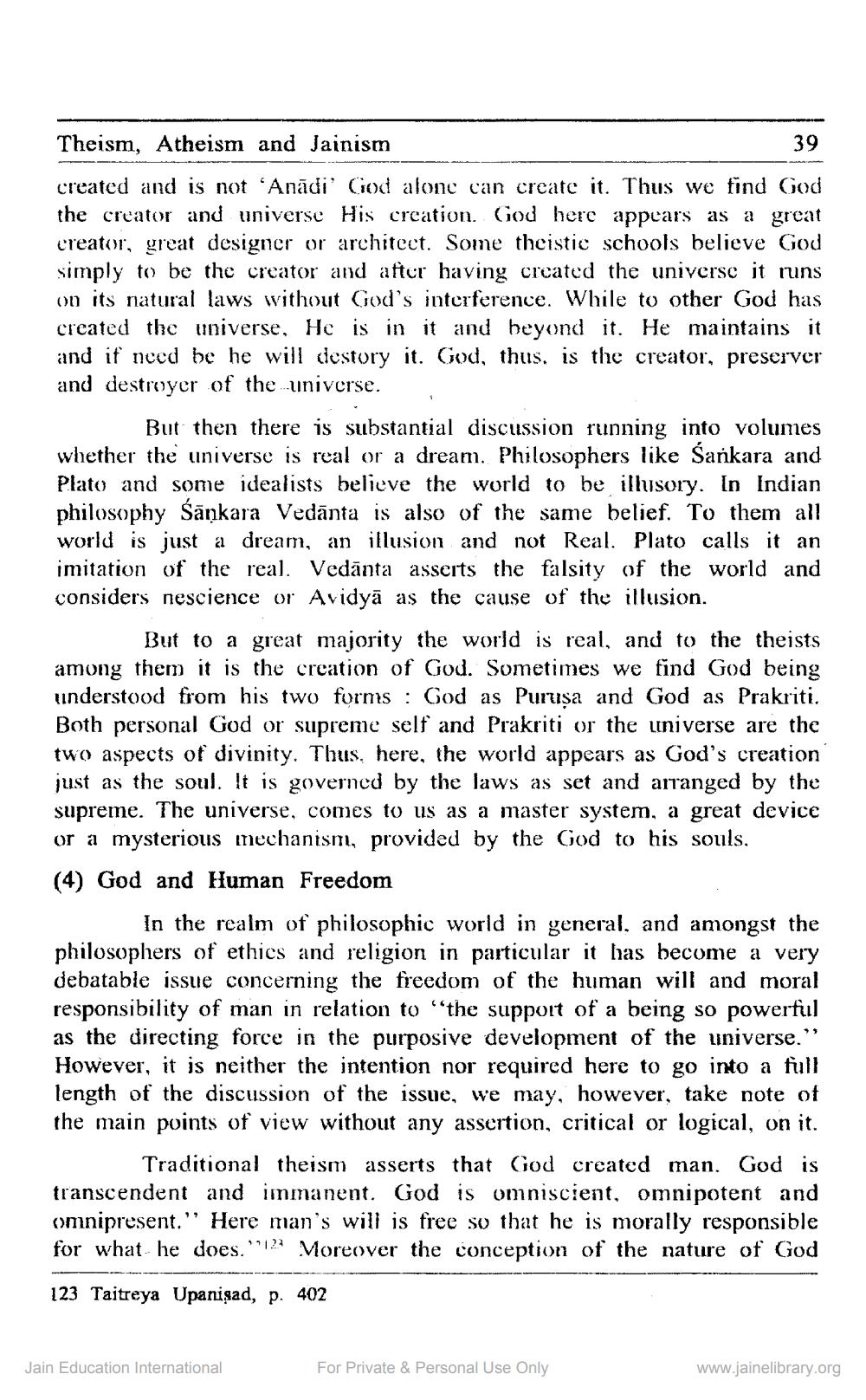________________
Theism, Atheism and Jainism
39 created and is not 'Anādi' God alone can create it. Thus we find God the creator and universe His creation. God here appears as a great creator, great designer or architeet. Some theistic schools believe God simply to be the creator and after having created the universe it runs on its natural laws without God's interference. While to other God has created the universe, He is in it and beyond it. He maintains it and if necd he he will destory it. God, thus, is the creator, preserver and destroyer of the universe.
But then there is substantial discussion running into volumes whether the universe is real or a dream. Philosophers like Sankara and Plato and some idealists believe the world to be illusory. In Indian philosophy Śāņkara Vedānta is also of the same belief. To them all world is just a dream, an illusion and not Real. Plato calls it an imitation of the real. Vedānta asserts the falsity of the world and considers nescience or Avidyā as the cause of the illusion.
But to a great majority the world is real, and to the theists among them it is the creation of God. Sometimes we find God being understood from his two forms: God as Purusa and God as Prakriti. Both personal God or supreme self and Prakriti or the universe are the two aspects of divinity. Thus, here, the world appears as God's creation just as the soul. It is governed by the laws as set and arranged by the supreme. The universe, comes to us as a master system, a great device or a mysterious mechanism, provided by the God to his souls. (4) God and Human Freedom
In the realm of philosophic world in general, and amongst the philosophers of ethics and religion in particular it has become a very debatable issue concerning the freedom of the human will and moral responsibility of man in relation to "the support of a being so powerful as the directing force in the purposive development of the universe." However, it is neither the intention nor required here to go into a full length of the discussion of the issue, we may, however, take note of the main points of view without any assertion, critical or logical, on it.
Traditional theism asserts that God created man. God is transcendent and immanent. God is omniscient, omnipotent and omnipresent." Here man's will is free so that he is morally responsible for what he does.24 Moreover the conception of the nature of God 123 Taitreya Upanişad, p. 402
Jain Education International
For Private & Personal Use Only
www.jainelibrary.org




